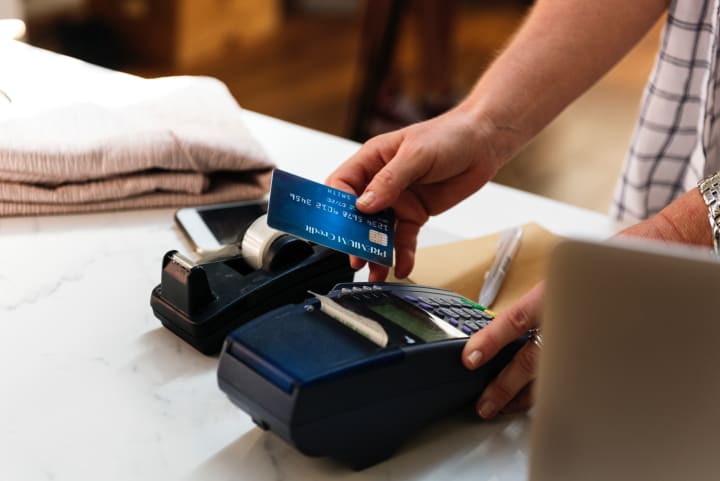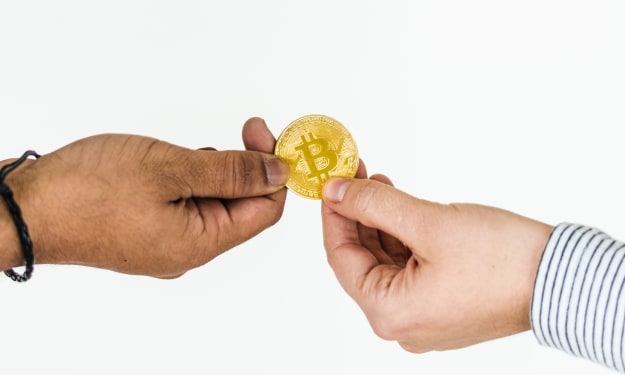10 Facts About Bitcoin You (Probably) Didn't Know
As a pioneering cryptocurrency, Bitcoin has been at the center of much financial discussion over the past decade. Whether you're a seasoned miner or a potential future investor, you should familiarize yourself with facts about Bitcoin that maximize its potential.

Do you know why May 22 is such an important date for Bitcoin? Do you know who created Bitcoin in the first place? Bitcoin is a titan among cryptocurrencies, with a storied history and a meteoric rise in value. It has been at the center of international scandals and political debates, and it has made fortunes for dedicated miners and programmers. There are, unsurprisingly, a number of interesting facts about Bitcoin that you should learn if you want to be involved in the world of cryptocurrency.
The first Bitcoin transaction was for pizza.

Photo by Alan Hardman on Unsplash
One of the most legendary stories in the history of cryptocurrency is the landmark event during which Bitcoin was first used as a real currency, meaning it was exchanged for goods and/or services. On that fateful day—May 22, 2010—10,000 Bitcoins were exchanged for two pizzas. Back then, one bitcoin was worth just a few pennies. With the price of Bitcoin today, 10,000 Bitcoins is worth millions of dollars.
We still don't know who created Bitcoin.

One of the craziest facts about Bitcoin I've ever heard is that nobody knows who established the pioneering digital currency. Officially, Bitcoin was created by Satoshi Nakamoto, but this is undoubtedly a pseudonym used by an unknown programmer—or even a team of programmers. Since Bitcoin was first introduced in 2009, there has been wild speculation regarding the true identity of Satoshi Nakamoto, but none of these investigations has come to fruition. Ultimately, since the decentralized nature of Bitcoin is part of its appeal, it is probably a good thing that nobody knows who invented it.
Bitcoin exists entirely on the web.

Photo by John Schnobrich on Unsplash
If you're new to the world of Bitcoin, there are a number of basic facts about Bitcoin that you should know before you dive in. First and foremost, Bitcoin does not exist off the internet. This helps it remain truly decentralized. Bitcoins exist on the blockchain network, and they can only be accessed by "miners," who harvest Bitcoin blocks from this network.
About a quarter of all Bitcoin is likely lost.

Photo by John Salvino on Unsplash
Since Bitcoin exists entirely online, accessing your Bitcoins isn't as simple as opening a bank account. In order to access Bitcoins that you've mined, you need to use a private key. These unique codes are stored in your digital Bitcoin wallet and are required in order for you to use your crypto. If you lose your private key, you have absolutely no way of accessing your Bitcoins, and neither does anyone else. Because of these, many people—especially people who owned Bitcoin before it was valuable—have lost or thrown away their private keys. An estimated 25 percent of all Bitcoins are likely lost, never to be accessed.
The supply is finite.

Photo by David Shares on Unsplash
It may be surprising to hear that there is a limited number of Bitcoins available. After all, a virtual currency should be infinite, right? Actually, if you think about how the price of Bitcoin is determined, the more Bitcoin there is, the less valuable it becomes! Currently, there are over 16 million Bitcoins in circulation. The upper limit for Bitcoin is currently set at 21 million, but miners aren't projected to extract the final Bitcoin until the year 2140.
You can now use Bitcoin for almost everything.

Bitcoin has come a long way since it was first used to purchase two Papa Johns pizzas in 2010. Today, thousands of businesses are accepting Bitcoins in exchange for goods and services, showing signs of how Bitcoin is becoming valuable in our society. You can use Bitcoin to buy a cup of coffee at Starbucks or a Tesla Roadster or anything in between. The ultimate goal for Bitcoin proponents is that one day there will be no functional distinction between cash and Bitcoin in the marketplace, and we are rapidly approaching that goal.
Bitcoin has profited (almost) every year.

Since its inception, Bitcoin has increased in value every single year except for one. Bitcoin's biggest growth year was 2010, when it rose from $0.0015 to $0.31. While the numbers may not seem impressive, consider the fact that this was more than a 20,000 percent increase. 2013 was another notable year for Bitcoin, when its value jumped from about $13 to over $750! The only year Bitcoin didn't grow was 2014, when the price of Bitcoin plummeted from $751 to $285. This drop was largely the result of the MtGox hack, and Bitcoin has since recovered.
You can't "ban" Bitcoin.

The advent of decentralized digital currency like Bitcoin and other cryptocurrencies has caused quite a stir in global markets. Governments across the globe have had varying reactions to the phenomenon. Some governments have actually created their own state-sponsored cryptocurrencies with varying degrees of success, while others have brought up the possibility of banning cryptocurrencies like Bitcoin. Ultimately, while it can be regulated, there is nothing governments can really do to effectively ban cryptocurrencies, and that is what makes them special.
Politicians don't understand how Bitcoin works.

Photo by Michael D Beckwith on Unsplash
One of the scariest facts about Bitcoin is that its future may be in the hands of a bunch of old politicians who admit they don't even understand how cryptocurrency works. Even when well-intentioned, these politicians usually don't have any idea what they're saying when they're talking about Bitcoin. While, as I've said, Bitcoin can't truly be banned or shut down, the governments of the world do have the power to heavily regulate cryptocurrencies to the point of potentially crippling their usefulness. As of right now, I don't see any immediate cause for alarm, but if you have any plans of investing in Bitcoin, you should keep abreast of the reasons why governments hate Bitcoin and any changing political policies.
Bitcoin is untraceable, but not really.

Photo by Andre Francois on Unsplash
When you make a Bitcoin transaction, the only personal information about you that is visible is your public address. Everything else, notably your name and identity, is kept private. This anonymity is part of the appeal of Bitcoin for many users. However, the nature of the Bitcoin blockchain is such that it acts as a permanent ledger. Of the lesser known facts about Bitcoin are concerned, literally anyone else on the chain with your public address can look up a complete history of your Bitcoin transactions and holdings. This record is ultimately good for Bitcoin users, as it allows government agencies to track down Bitcoin scammers and other criminals. How do you think the FBI shut down the Silk Road site in 2015?
About the Creator
Joseph D. N. Kendrick
Writer of words. Haver of cats. joeykendrick.com






Comments
There are no comments for this story
Be the first to respond and start the conversation.